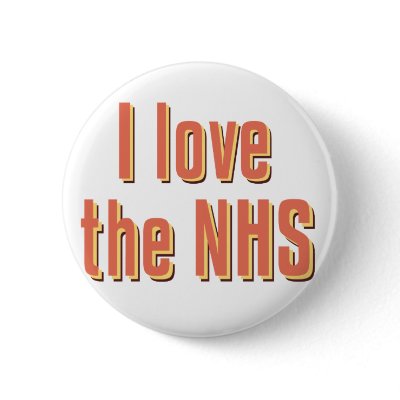Hi,
So here I am, back in in the UK and back in my university hospital. I will continue with the weekly blogs, but have a little bit of a back log now, due to the fact that I was posting all of the elective blogs after my return, through my first 8 weeks of rotations. Despite the fact the blogs will be weekly, I will try and post the next few as quickly as possible to catch up with myself, then get back into the old regime. Daily is far too often for me to write, or for you to bother reading, and was only worthwhile for my elective, when so much was happening at once!
My first rotation on my return is Oncology, which will last for about 6 weeks. I hardly saw any oncology patients on my elective, and seeing as I intercalated in immunology last year, this means that I have about a year and a half since I had really done anything in oncology. In fact, I have a year and a half hiatus where I have done very little clinical work at all, excluding the elective (which was so different it hardly counts). Needless to say, I hardly remember anything and am approaching this week with some trepidation.
Having intercalated, whereas much of my university doesn't, I am in a new year, with some old friends and many new people. I was social secretary in my second year, organising many events for the then freshers, meaning that I know the year below (which is now my year). Despite this, it is still strange being in a rotation with new people, after I have gotten to know my year so well over the last 3 years. This isn't all bad, though, and it is nice to get to know people who I have only ever seen out at bars a little better. I am now officially starting my fourth year, even though this is my fifth year at Uni, given my intercalated degree, which makes for slightly complex explanations when people from outside medicine ask which year I am in!
The Oncology rotation seems to be predominantly seminar/lecture based, which is a real shame. The time table tells me that I spend a lot of time in lectures or with free time rather than on the wards. Despite this, I do have some clinical experience each week. Not as much as in my third year, but hopeful;y enough to let me remember all the things I used to know (all two of them...) My first day on oncology sees me in a specialist oncology ward with no real purpose, other than to talk to and examine a few patients, and report back to the doctors in charge of the ward. This isn't really of too much use to the patients, though with all the time I have I may find out something useful that the doctor's didn't know, but it is very useful to me, as I get to practice all of the skills I don't really have. This is a common way of learning used in hospitals, and patients are normally only too happy to help out "You have got to learn sometime!"
This whole experience was pretty confusing. Not because of my poor history taking and examination skills, though these were sub-par, as expected. It was because of the massive difference to the environment I was used to in Tanzania. I know it sounds cheesy and strange, but the difference really is scary. I suppose I expected it when I went to Tanzania, I expected it to be poorly supplied and poorly staffed, and so wasn't too surprised. Coming back to the UK, I suppose I expected it to be 'normal' - as it was what I would expect to be used to. Perhaps a combination of the fact all the clinical experience I have had in the last one and a half years has just been the gritty Tanzanian hospital, and the fact that the oncology ward is fantastically staffed and well supplied (cancer is, after all, very popular with the media, and hence seems to collect a lot of funding). To say I was 'overcome' would be a little bit of an overstatement, but I really was shocked at how spacious and clean the ward was, and more than anything, how caring the nurses are. I suppose in Tanzania I was used to the nurses who didn't really do anything, patients never got washed and there were not even any bedsheets to clean. Here the nurses take the time to do everything, feeding patients who cannot feed themselves and taking time out to help explain things to us. Perhaps I am just enjoying being back at the bottom of the medical food chain, where everyone knows a lot more than me, and is happy to explain it to me, compared to my opposite experience in Tanzania, but it is lovely here. I love the NHS.
A new badge for me to wear.




No comments:
Post a Comment